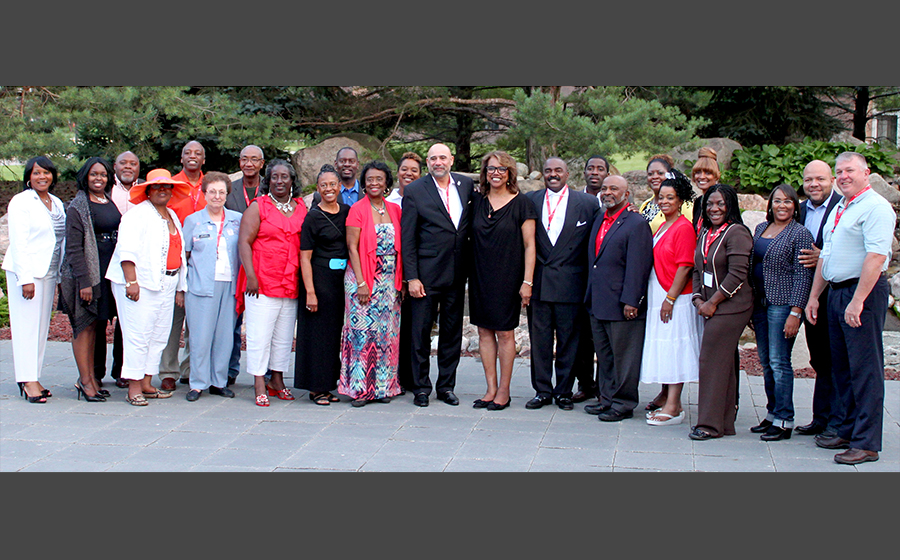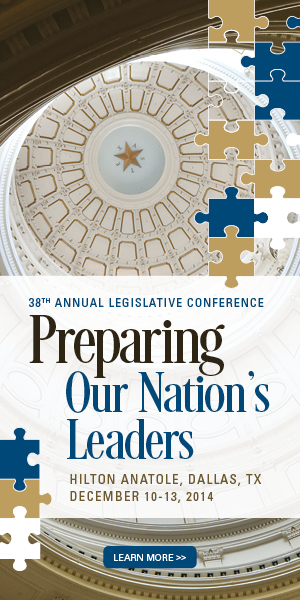 2014 George Washington Carver Summer Research InternsTwo programs in Iowa are working to continue the legacy of George Washington Carver by inspiring young people to pursue opportunities in agriculture and related fields, and to open the eyes of policymakers to the promise of agriculture for today’s youth.
2014 George Washington Carver Summer Research InternsTwo programs in Iowa are working to continue the legacy of George Washington Carver by inspiring young people to pursue opportunities in agriculture and related fields, and to open the eyes of policymakers to the promise of agriculture for today’s youth.
The Urban Ag Academy
By Representative Helen Miller, Iowa House District 9
It is clear that agriculture, food production and rural issues are not well understood by the public in general. That includes policymakers, whose awareness of these issues is key to maintaining the nation’s global leadership in agriculture and preparing the next generation of young leaders in agricultural fields.
When I was a young person, you could have counted me among the unenlightened. I grew up in the urban environs of New Jersey. My parents were part of the great migration north. Growing up, my siblings and I heard stories about the historical hardships of farming as an African American. Though many of us still had relatives “down south,” we did not wish to emulate that way of life. We developed a negative view of farms and farming.
My attitude changed when I moved to Iowa. I was exploring the Iowa agricultural landscape in all its dimensions even before I was elected to state office. Being an African-American legislator representing a majority white district in the middle of rural, agricultural Iowa had an impact on my service. It was the catalyst for me to join the Iowa House Agriculture Committee, realizing that agriculture was vital, varied, and could provide the gateway to education and careers for youth, including African Americans.
In part, this is what prompted me to establish the Urban Ag Academy. The academy began with a primary focus to inform an ever-increasing number of urban and minority leaders and policymakers on agricultural issues. Both rural and urban districts stand to reap enormous benefits from a better understanding of the power of agriculture to the entire economy, as well as relevant issues faced by rural constituencies.
Part of the academy’s focus includes agricultural education, including exposing minority and urban youth to opportunities to be successful in modern agriculture’s promising careers. During this summer’s annual Urban Ag Academy in Ames, Iowa, it was a pleasure to see legislators interact with the diverse students from around the country studying in Iowa State University’s George Washington Carver Summer Internship Program.
In the years ahead, we sincerely hope to reignite the passion that George Washington Carver possessed and share it with young and old alike, for the benefit of agriculture, the nation and the world.
-
 2014 Urban Ag Academy Attendees--State Legislators from Iowa and Across the Country
2014 Urban Ag Academy Attendees--State Legislators from Iowa and Across the Country
2014 Urban Ag Academy Attendees--State Legislators from Iowa and Across the Country
2014 Urban Ag Academy Attendees--State Legislators from Iowa and Across the Country
-
 Representative Miller and Jamie Malone, GWC Intern, at the 2014 Urban Ag Academy
Representative Miller and Jamie Malone, GWC Intern, at the 2014 Urban Ag Academy
Representative Miller and Jamie Malone, GWC Intern, at the 2014 Urban Ag Academy
Representative Miller and Jamie Malone, GWC Intern, at the 2014 Urban Ag Academy
http://thelegislator.org/index.php/component/k2/item/43-continuing-the-legacy-of-george-washington-carver.html#sigProId3b0b217899
The George Washington Carver Summer Research Internship Program
By Theressa Cooper, PhD, Assistant Dean for Diversity, College of Agriculture and Life Sciences, Iowa State University
A significant milestone in agricultural history is being celebrated in 2014. This year is believed to be the 150th anniversary of the birth of George Washington Carver, one of America’s greatest educators, mentors and agricultural scientists.
Though the exact date is unknown, many historians believe 1864 was the year Carver was born into slavery in Missouri. He was educated in Iowa, first at Simpson College and then Iowa State University. Carver was Iowa State’s first African-American student, earning a bachelor’s degree in 1894 and a master’s in 1896. As a student, he was a leader both in and outside the classroom, and truly a model for Iowa State’s motto: “Science with Practice.”
Carver became Iowa State’s first African-American faculty member, and he went on to become the renowned, brilliant scientist and educator at Tuskegee. We believe Carver’s life is an exemplar for inspiring today’s students. We do this through education and mentoring of young scholars who have the potential to become this century’s “George Washington Carver.”
Traditionally, people of color and women have been under-represented as professionals and leaders in agricultural careers linked to science, technology, engineering and math (STEM) fields. But today, as even greater opportunities in agriculture-related STEM fields become available and demands increase for a more diverse workforce, women and students of color must be positioned to meet the occasion head on.
The U.S. Department of Agriculture noted an annual shortage of college graduates to fulfill a yearly demand for 54,400 job openings from 2010 to 2015. The agricultural jobs represent a spectrum of exciting careers in science and engineering, management and business, agriculture and forestry production and education, communication and governmental services.
One way we work to meet the demand for agricultural graduates is through the George Washington Carver Summer Research Internship Program offered each year through the College of Agriculture and Life Sciences at Iowa State University.
For over 20 years, the program has impacted and engaged the minds of high school and undergraduate student program participants from across the United States and Puerto Rico. It has averaged about 25 participants each year, with many students of color and women taking advantage of the opportunity for hands-on research and mentoring by some of the world’s leading agricultural scientists.
The Carver program exposes young people to incredibly diverse research experiences in multiple disciplines and interdisciplinary fields. The Carver interns conduct lab and field research under faculty direction, and take part in professional development activities. At the end of the summer, the interns give a formal research presentation and participate in an all-university student research poster session.
The Carver program has inspired students of color and women to keep exploring the STEM fields of agriculture. Each year, approximately 20% of the interns decide to come back to Iowa State to study agriculture as either undergraduates or graduate students.
The Carver program serves to bridge the gap between access and opportunity that is not always available to multicultural or first-generation college students, or to those with strong interests in agricultural STEM but without strong local programs to explore. The program seeks to improve the research enterprise through increased diversity, champion the value of graduate education, and prepare and recruit the best and brightest for the future of agriculture.
We are working to keep the spirit of George Washington Carver alive. We take great pride in working to continue his legacy by inspiring the lives of the youth we serve.











